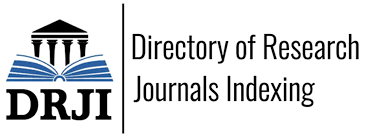The existence of the Ahmadiyya in Indonesian democracy: a struggle for survival in the midst of the Islamic-movement competition
DOI:
https://doi.org/10.18326/ijoresh.v1i2.167-187Keywords:
Democracy, Ideological competition, Ahmadiyya, The logic of power, Islamic moderatism, Islamic radicalismAbstract
This article attempts to portray the competition of forces in the Indonesian democratic system, with the Ahmadiyya movement as the test case for the “contestation”. This article takes into account the reformation era as the landscape of the study, since this era opens a relatively wider opportunity for many entities to freely express their ideas and actions. Exploring the socio-political approach, this study comes up with the following findings: first, in the sociological domain, as predicted by Dawam Rahardjo, moderates defeat radical Indonesian Islam as the former outnumber the latter. However, in the political domain, as pointed out by Martin van Bruinessen, since the moderate Islam is just a silent majority, then the radical Islam wins the competition - marked by the issuance of the SKB Tiga Menteri, because the factor at work in the winning of this political competition is more on the “logic of power”, rather than the “power of logic”. The victory of the radical Islam in the political domain in turn implies at the failure of the Ahmadiyya movement in its struggle for survival in Indonesia.
Downloads
Published
How to Cite
Issue
Section
License
Copyright
Authors who publish with Indonesian Journal of Religion, Spirituality, and Humanity agree to the following terms:
- Authors retain copyright and grant the journal right of first publication with the work simultaneously licensed under a Creative Commons Attribution License (CC BY-SA 4.0)that allows others to share the work with an acknowledgement of the work's authorship and initial publication in this journal.
- Authors have the right to enter into separate, additional contractual arrangements for the non-exclusive distribution of the journal's published version of the work (e.g., post it to an institutional repository or publish it in a book), with an acknowledgment of its initial publication in this journal.
- Authors are permitted and encouraged to post their work online (e.g., in institutional repositories or on their website) prior to and during the submission process, as it can lead to productive exchanges, as well as earlier and greater citation of published work.
Licensing
This work is licensed under a Creative Commons Attribution-ShareAlike 4.0 International License.









